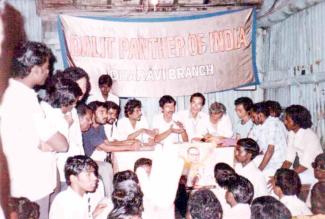The Mahavikas Aghadi (MVA) of Congress, NCP–Sharad Pawar and Shivsena (UBT) won 30 out of 48 Lok Sabha seats it contested. This tally could have improved by at least five seats if the Vanchit Bahujan Aghadi (VBA) had joined the MVA alliance. One more seat could have been added to the opposition tally if Raju Shetti’s Swabhimani Paksha would join hands with MVA. There has been a strong undercurrent against the BJP rule at the centre and a sympathy wave for both Sharad Pawar’s NCP and Uddhav Thackeray’s Shiv Sena.
This election saw some significant re-alignments of the voters. The Muslims voted majorly for the MVA alliance, as the state witnessed increasing violence and hatred against minorities orchestrated by the ruling BJP-Eknath Shinde’s Shiv Sena alliance. The vote consolidation for MVA happened despite lack of representation to Muslims in the choice of the candidates.
Prakash Ambedkar, grandson of Dr. Bhimrao Ambedkar, was a key player in the 2019 Lok Sabha elections with his party, the VBA, garnering a considerable vote of around 41 lakhs. (This was of course a cumulative effect of the Dhangar community’s votes as well as votes of AIMIM.) VBA considerably impacted MVA’s prospects by fracturing the anti-BJP votes. Considering Prakash Ambedkar’s legacy and the 1.3 crore Buddhist votes in the state, the MVA tried to bring VBA on board. Prithviraj Chavan of the Congress is on record that the VBA was offered 5 seats.
The Dalits had made up their mind against the BJP because of the issue of subversion of the constitution. Dr. Babasaheb Ambedkar’s warning against the republic being converted into Hindu rashtra had a deep resonance among the dalits besides the issues like price rise and unemployment.
In fact, the MVA winning 4 out of 6 seats, in Mumbai was due to the consolidation of dalit and Muslim votes from the slums and working class areas in favour of the opposition alliance. In other urban areas, like Thane and Kalyan where slum dwellers are in minority, the BJP led alliance has won. While this was the ground reality, the dalit parties and their leadership in the state proved out of tune with masses.
Dr. Babasaheb’s clarion call - Educate, Organise and Agitate - to the dalit masses has been given a complete miss by the present dalit leadership and organisations. In Maharashtra, alone the total number of Dalit organisations runs into hundreds. After the demise of Dadasaheb Gaikwad, founder of Republican Party of India no organised struggles have been launched on the basic issues of employment, land, social, economic justice and housing (all the major slums in urban areas have majority of intra/inter-state dalit and Muslim migrants) by any of the dalit groups. The quest has always been to enter the corridors of power. Sporadic actions have been limited as a symbolic reaction to emotional issues, without any sustained intervention to ensure justice.
Prakash Ambedkar along with Jogendra Kawade, Ramdas Athavale, Gavai had joined hands with Congress in 2004 and won the parliamentary elections. He founded Bharipa Bahujan Mahasangh, aligned with AIMIM and after the Bhima Koregaon incident formed the VBA. He had announced a joint front with Shiv Sena (UBT) in early 2024, but he finally decided to contest independently and put up candidates in 37 constituencies. Many candidates opted out and had to be replaced at the last hour. This time around the vote share came down to a mere 15 lakhs.
There is a widespread criticism of Dalit leadership in general and that of Prakash Ambedkar in particular amongst the Dalit masses quite openly. It remains to be seen how this criticism converts itself into a united Dalit assertion in terms of organisation for wider socio economic justice and the rightful political space.










